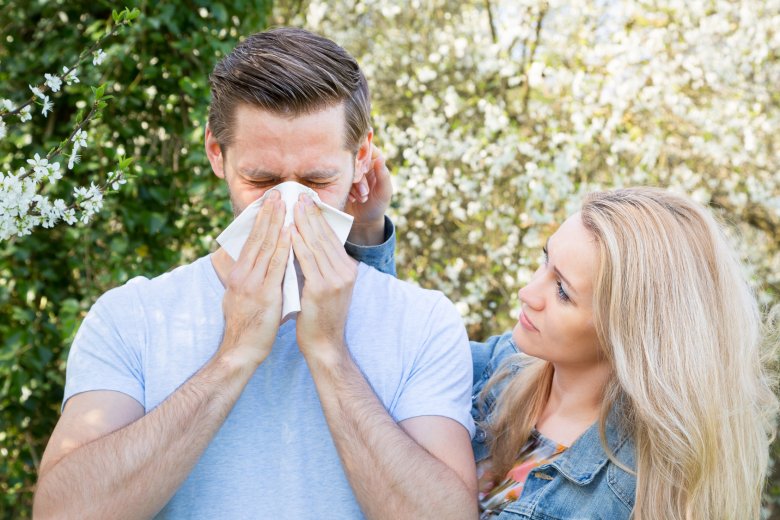
The spring allergy will not disappear, but by following our advice wisely, you will be able to alleviate its first symptoms without restricting contact with nature.
Spring allergy - symptoms
How to make sure that your current annoyance is spring allergy and not even a cold? These are the main symptoms that make you think you should go to an allergologist or start acting on your own:
- Symptoms appear seasonally during the spring flowering of plants and flowers, especially grasses and some tree species. For example, from February the hazel starts to bloom, in April the birch, from May to July the wheat and then the weeds (in good weather until the end of September).
- Sensitization begins like an ordinary rhinitis - the nose clogs, there is a feeling of "twisting", sneezing, eyes tear, scratching in the throat, coughing.
- Symptoms intensify when you leave home, outdoors, and cold remedies do not help.
Spring allergy - the best advice
What helps with spring allergy?
- Watch the pollen calendar of each plant to know when to be prepared and anticipate allergic seizures.
- Install dense nets in the windows of the house or apartment, which will catch most of the pollen and additionally protect the interior from insects, which are so troublesome in summer. Special filters can also be installed to capture the pollen.
- Take a shower every time you return from the outside and rinse your hair and hard-to-reach areas with fine pollen. Hair is best washed in the evening so that the remaining pollen does not impede breathing, blocking the respiratory tract.
- The ingress of pollen into the nose will prevent, and certainly limit, the lubrication of the nostrils (also inside) with a thicker layer of Vaseline.
- Don't play sports in the open air when they pollen allergy sufferers' plants. Physical exertion causes deeper breathing, pulling large amounts of air into the lungs, and with it even more pollen.
- At the highest concentration of pollen in the air, limit leaving home to the minimum necessary - road to work, school, university. Plan excursions outside the city, to the water, to the forest or walks in a few weeks' time.
- Windward and rainy days mean an increased concentration of dangerous pollen in the air. They spread much faster, fall into the lungs through the mouth, and also into the flats through open windows. Do not open them then and clean the floors as often as possible. This is where an automatic vacuum cleaner is perfect, which can clean floors in your absence.
- Walk right after the rainfall when the pollen has fallen, is damp and has not yet been lifted back.
- Lawn mowing even before the grass has bloomed.
- Do not dry the laundry outside in spring.
- The sun exacerbates allergy symptoms and enhances itching of the eyes and eyelids, so sunglasses not only with UV filter, but also with side covers will be useful.
